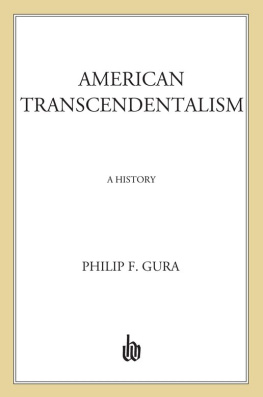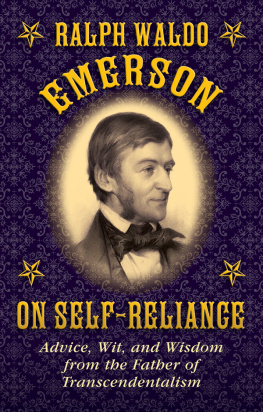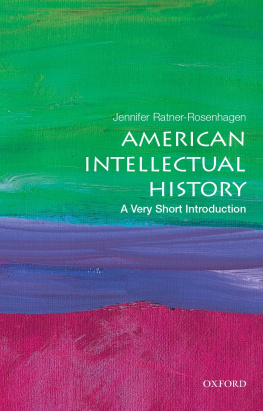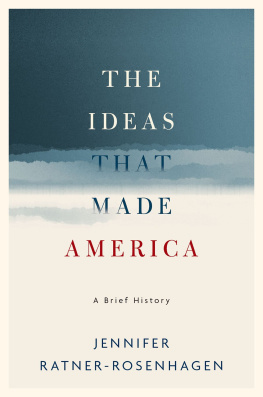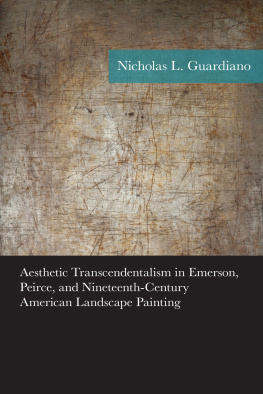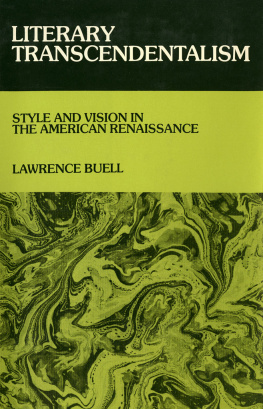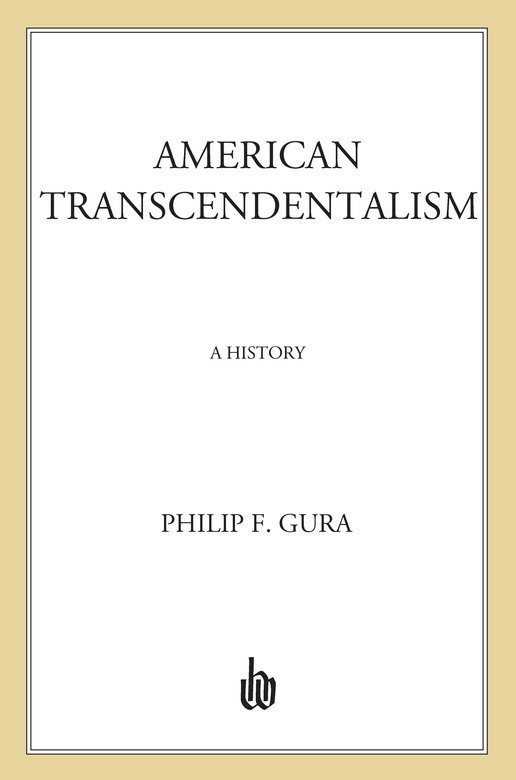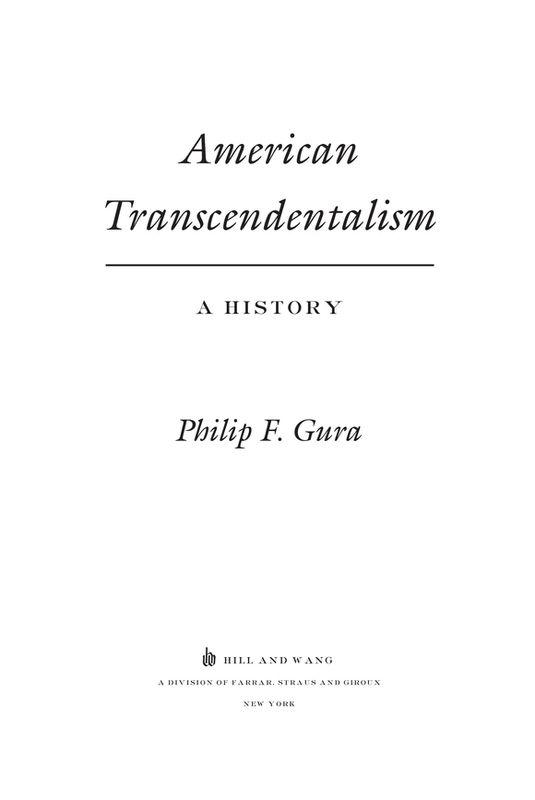Most educated Americans identify Transcendentalism as a nineteenth-century intellectual movement that spawned Ralph Waldo Emerson, Henry David Thoreau, and Margaret Fuller. They recall such iconic gestures of individual conscience as Emersons studied insult of the Harvard faculty in his Divinity School Address, Thoreaus sojourn at Walden Pond and the great book that resulted, and the pioneering feminist Fullers declaration, I accept the universe! The more sophisticated know as well that the Transcendentalists comprised one of the nations first coherent intellectual groups: movers and shakers in the forefront of educational reform; proselytizers for the rights of women, laborers, prisoners, and the indigent and infirm; and agitators for the abolition of slavery.
For a twenty-year period between 1830 and 1850 they met in one anothers homes, attended one anothers lectures and sermons, and read and reviewed one anothers writings. Along with the expatriate generation of the 1920s and the Beat generation of the 1950s, they remain one of the nations most compelling and influential intellectual coteries, and as well are the source of many ideas that have come to define what is American. Writing in The Dial , the Transcendentalists house organ, the journalist J. A. Saxton summed it up well. The very existence of the United States is transcendental, he observed, for its right to be a nation was broadly and unequivocally legitimated upon the instinctive truth of the principle of the equality and brotherhood of universal man.
We cannot overestimate the excitement the Transcendentalists ideas generated and the commitment they engendered. Orestes Brownson, the groups member most identified with the cause of the laborer, put it best late in his life when he recalled how, forty years earlier, he and his friends had threatened to turn the world upside down. Addressing a new cadre of reformers, he reminded them that the Transcendentalists had been first at the barricades. What have any of you to teach me who participated in the Boston intellectual movement from 1830 to 1844? he asked. We Bostonians, he proudly proclaimed, were a generation ahead of you.
Emerson described the almost palpable excitement at the Transcendentalist flowering and its promise of a new world. No one, he wrote in 1840, can converse much with the different classes of society in New England, without remarking the progress of a revolution, even as the spirit of the time is felt by every individual with some difference. To one person, the zeitgeist comes in the shape of special reforms in the state; to another, in modifications to the various callings of men, and the customs of business; to a third, opening a new scope for literature and art; to a fourth, in philosophical insight; to a fifth, in the vast solitude of prayer. It is, he concluded, in every form a protest against usage, and a search for principles.
To many people, however, the Transcendentalists were unsettling, and as often ridiculed or reviled as respected. On his famous trip to the United States at the height of the Transcendentalist ferment, for example, the English novelist Charles Dickens observed that when he inquired of some of his American friends what Transcendentalism signified, he was given to understand that whatever was unintelligible would be certainly transcendental. The Scottishwriter and reformer Thomas Carlyle, following a visit from the Transcendentalist George Ripley, who had resigned his ministry to start a socialist community at Brook Farm, a few miles from Boston, was equally acerbic: Carlyle termed his recent New England guest a Socinian [that is, Unitarian] minister, who has left the pulpit to reform the world by cultivating onions.
These gibes masked a profound uneasiness with the Transcendentalists challenge to contemporary beliefs and mores, based as it was in radical European philosophical and social thought that puzzled and frightened many Americans. The staunch Unitarian Francis Bowen put it baldly. The new philosophy of the emergent Transcendentalist group, he wrote, is abstruse in dogma, fantastic in its dress, and foreign in its origin. It comes from Germany, he continued, and is one of the first fruits of a diseased admiration of every thing from that source, amounting in many individuals to nothing less than sheer midsummer madness. Simply put, the Transcendentalists message was more ridiculed than understood or appreciated.
And yet the group was undeniably seminal to American cultural and intellectual history. In the nations centennial year, Transcendentalisms first historian, O. B. Frothingham, summed it up well.The movement, though local in activity, limited in scope, brief in duration, engaging but a comparatively small number of individuals, left a broad and deep trace on ideas and institutions. It affected thinkers, swayed politicians, guided moralists, inspired philanthropists, created reformers.
The Transcendentalists were split, however, over how best to effect such reformation. One group, which Emerson epitomized, championed introspection and self-reliancewhat one precursor to the movement termed self-cultureas keys to the spiritual life, an ethic that fitted conveniently with the antebellum economic expansion known as the Market Revolution. Another group, centered on Ripley and Brownson, stressed the brotherhood of man and outer-directed behavior for the common good, an ethic inherited from the civic republicanism of the post-Revolutionary generation as well as from contemporary European socialism. Friction between those who emphasized hyper-individualismwhat one participant called egotheismand those who championed mens and womens irreducible equality marked Transcendentalism from the time of its initial coalescence as an identifiable movement.
For a while, however, the movement held together, and what began as parochial religious controversy over the relative values of reason versus emotion in the spiritual life spawned a vital culture of reform. But as the sectional crisis of the 1850s challenged Americans to confront the immense fact of chattel slavery, hitherto prominent dimensions of such reformthe rights of women, labor, and the indigent, for examplewere lost in the maelstrom, viewed as less significant than the horrors of the Southern plantation. Unfortunately,it was decades before such issues again came front and center, for in the postCivil War era, the uneasy balance between the parties of self and of society tipped in the direction of the former, whose philosophy supported individual rights and market capitalismor what is now called democratic liberalismrather than humanitarian socialism. Emersons demanding philosophy of self-reliance, an artifact of the early 1840s, became simplified and was adopted as a chief article of national belief. More and more, American Transcendentalism became identified through his vision of the imperial self, a process only accelerated after his death in 1882.
Transcendentalism thus was another in a long line of attempts to redirect the still incomplete American experiment, in this case by anchoring it in the sanctity of each individuals heart. The Transcendentalists unique position in, as well as their final contributions to, the cultural life of the new nation resided in their attempts to reenergize and redirect what they increasingly regarded as the countrys misguided and faltering democratic experiment. This book records the story of how these early-nineteenth-century Americans awakened to the possibility of a fully egalitarian brotherhood, encouraged it, and then, under the pressure of insular politics, finally lost their battle to maintain its relevance to the meaning of America. It answers the question of how a movement whose roots were so catholic and universal eventuated in a discourse that promoted an American exceptionalism based on self-interest.

